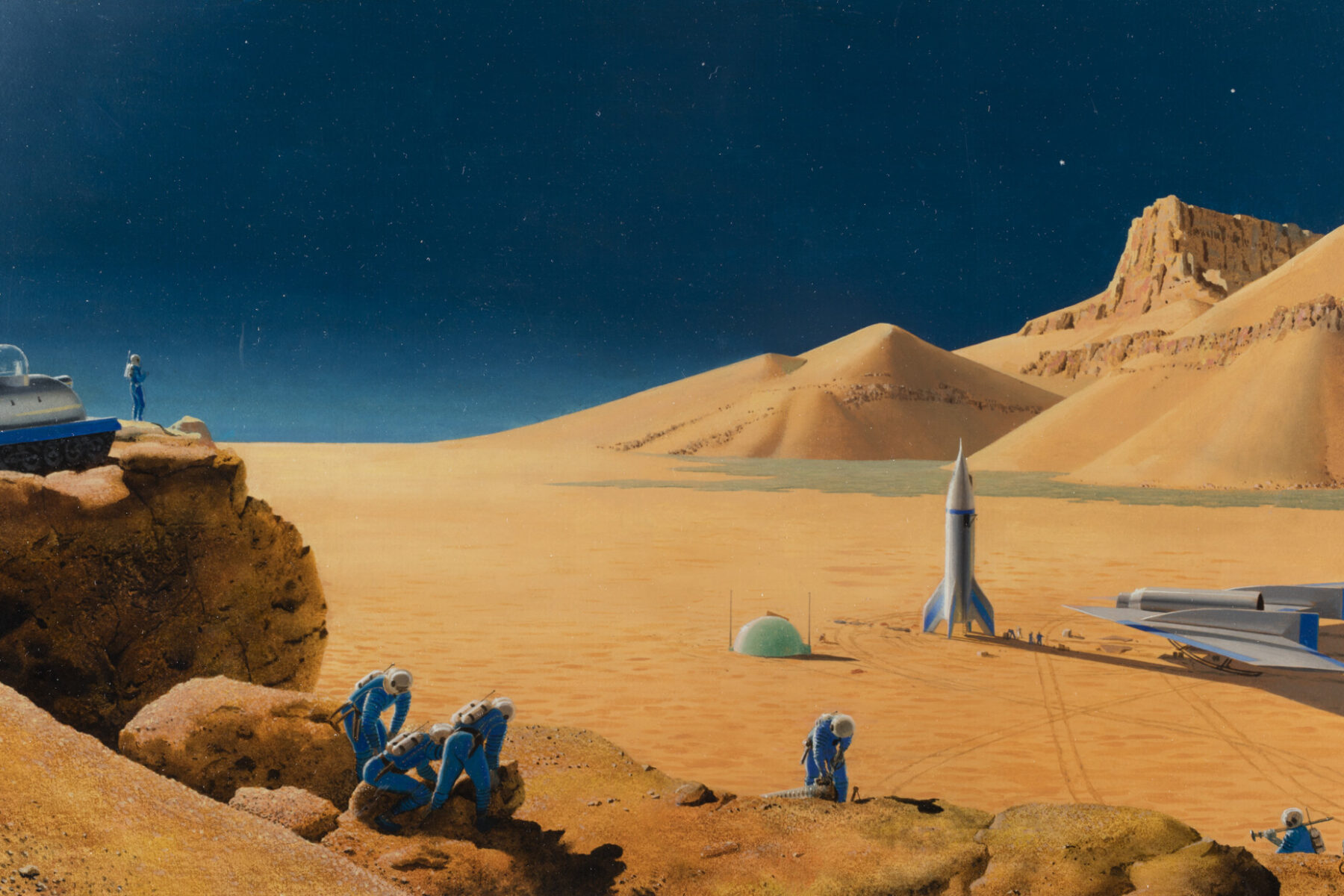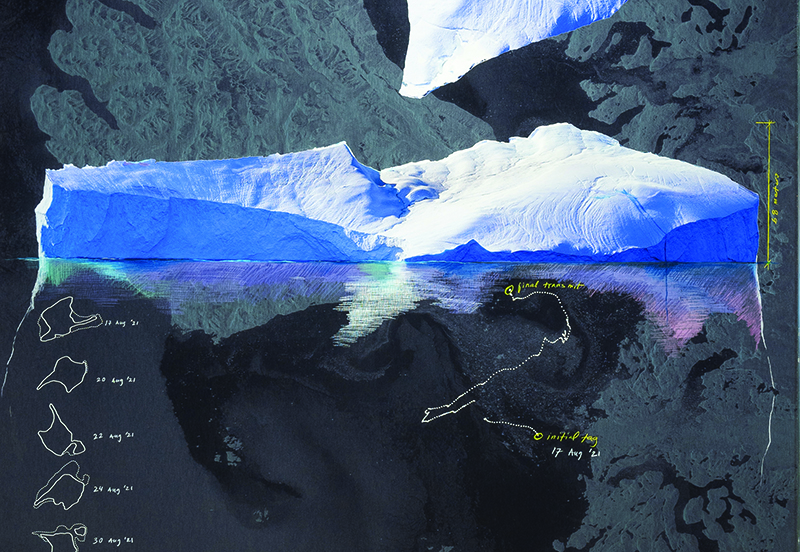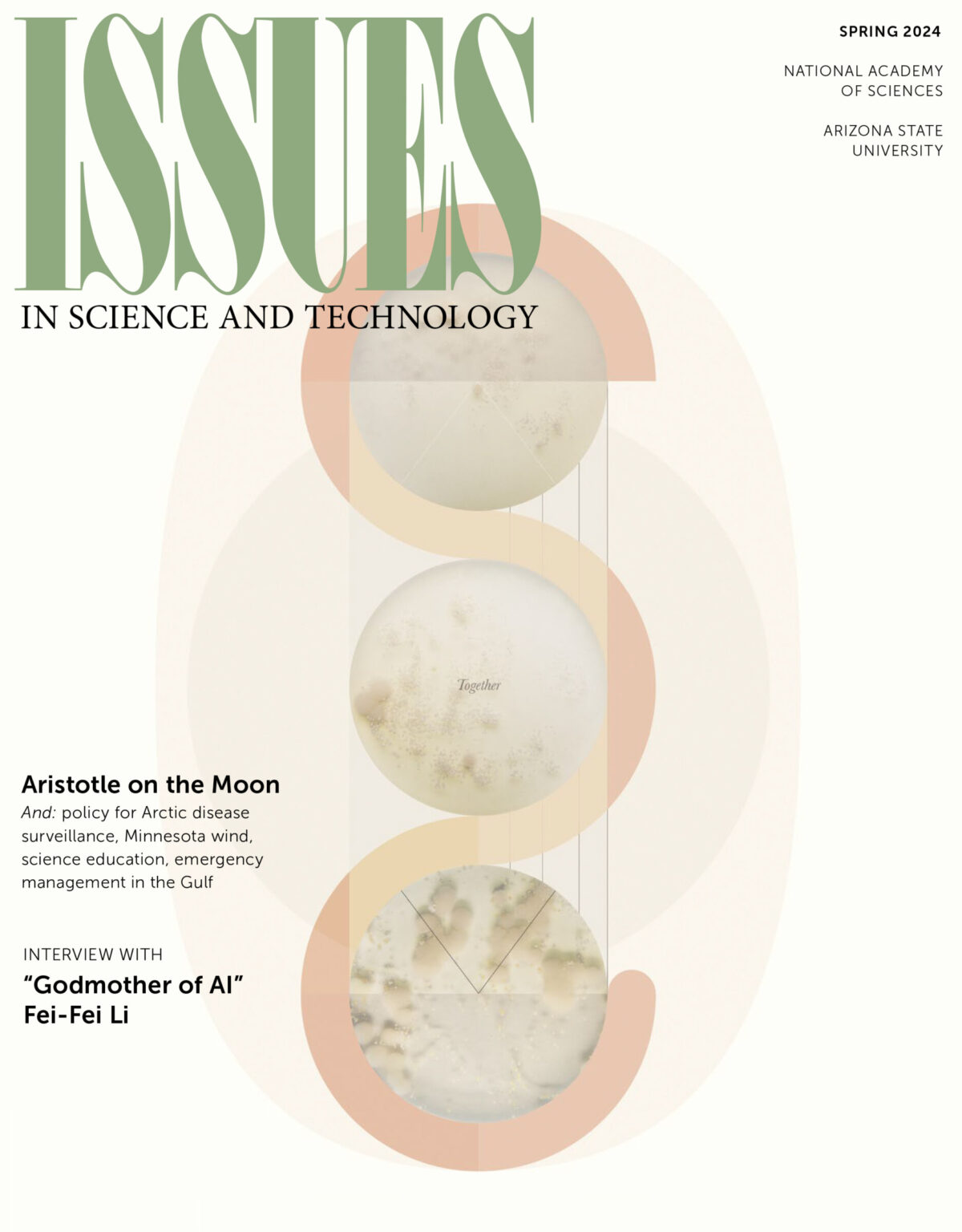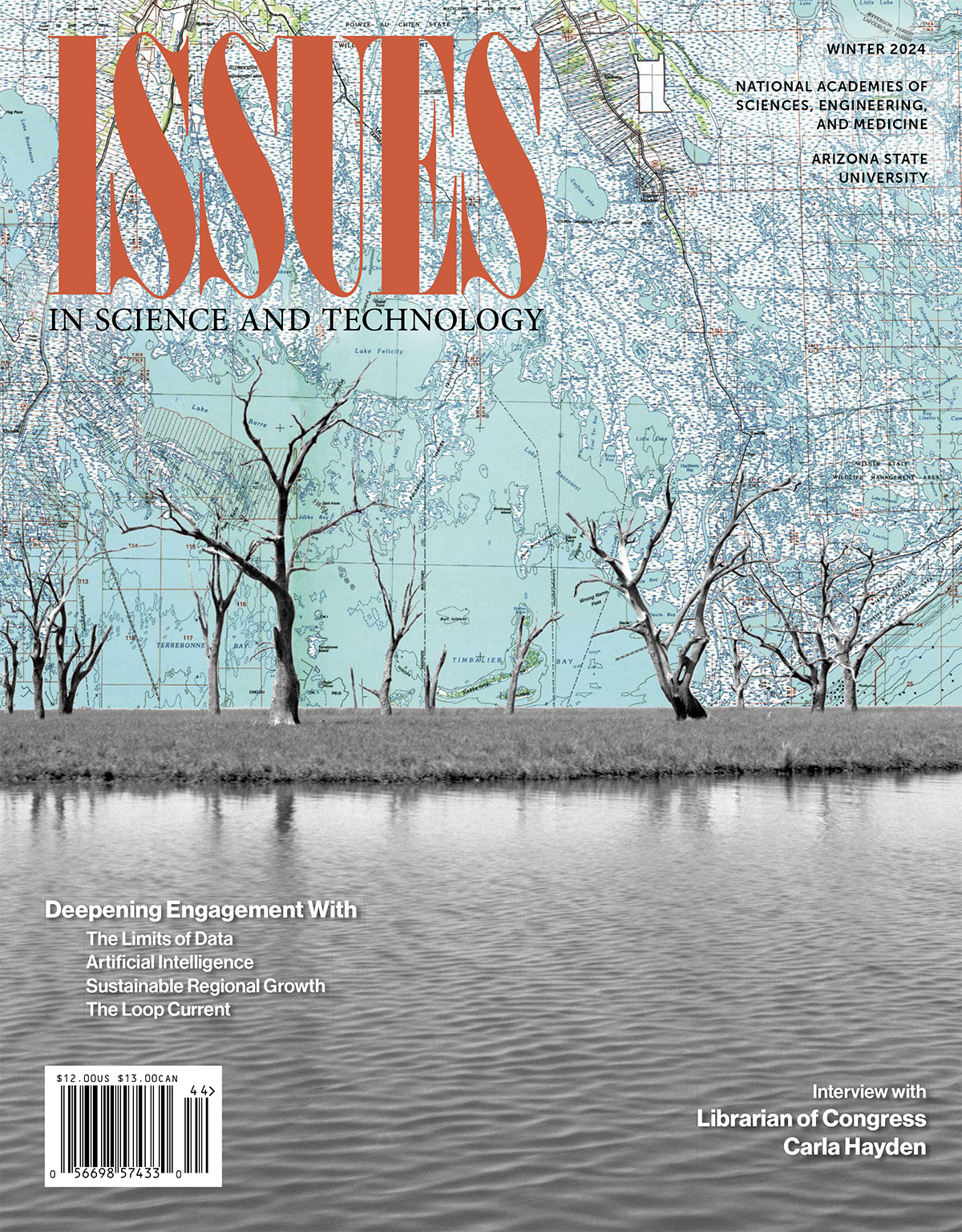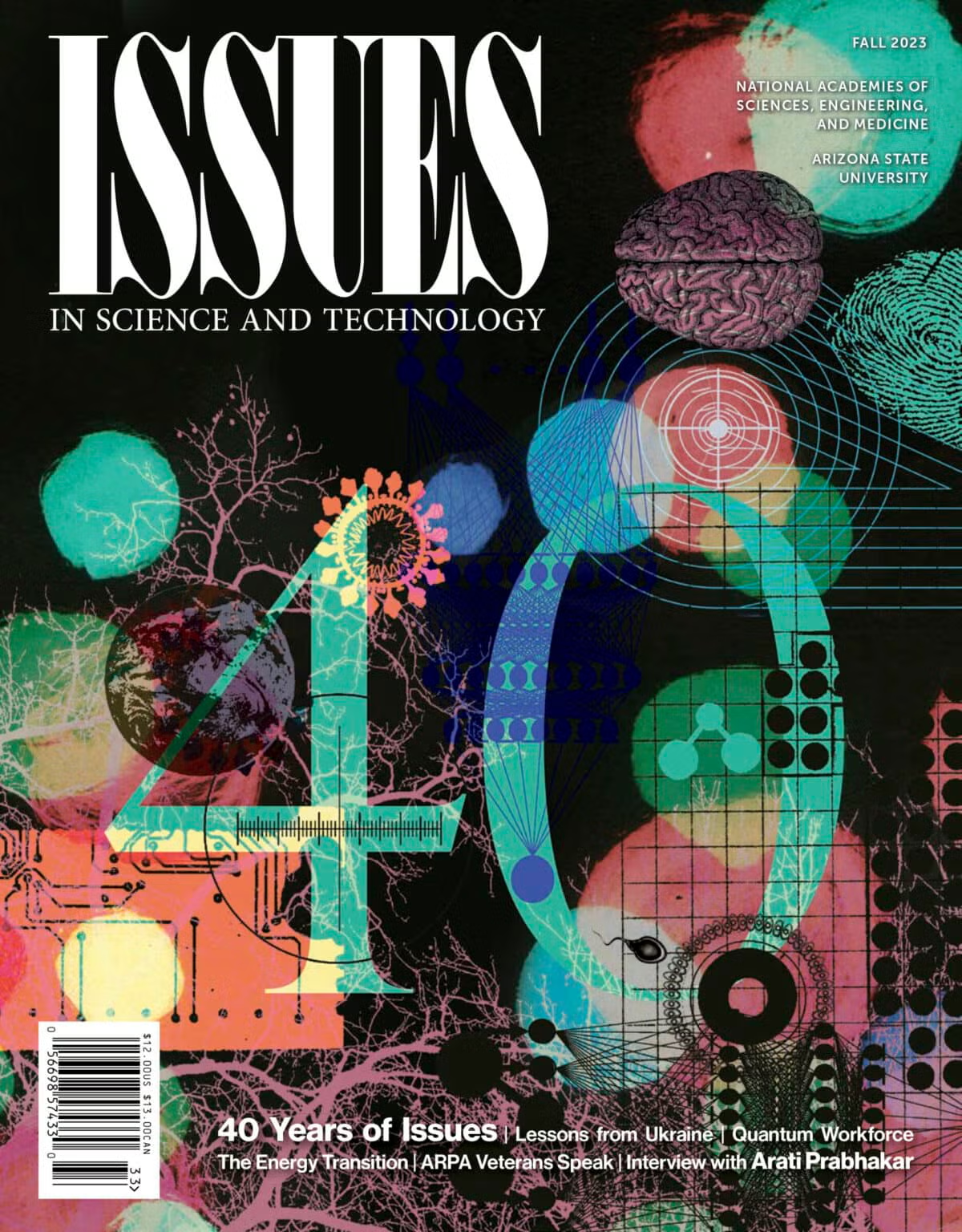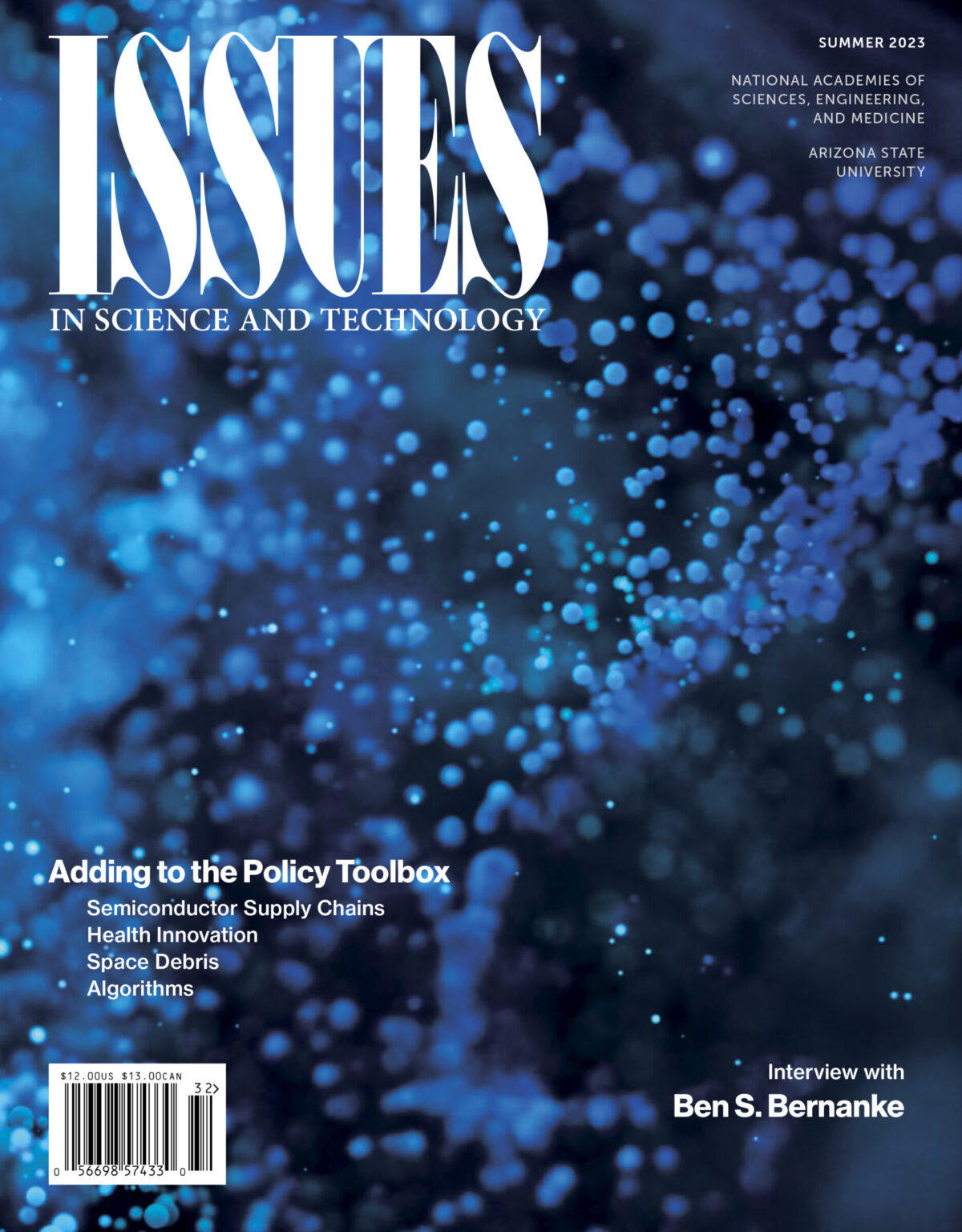The latest

A Fond Farewell to the Anthropocene
Editor’s Journal

Mud, Muddling, and Science Policy
Science Policy IRL

Amanda Arnold Sees the Innovation Ecosystem from a Unique Perch
Higher Education
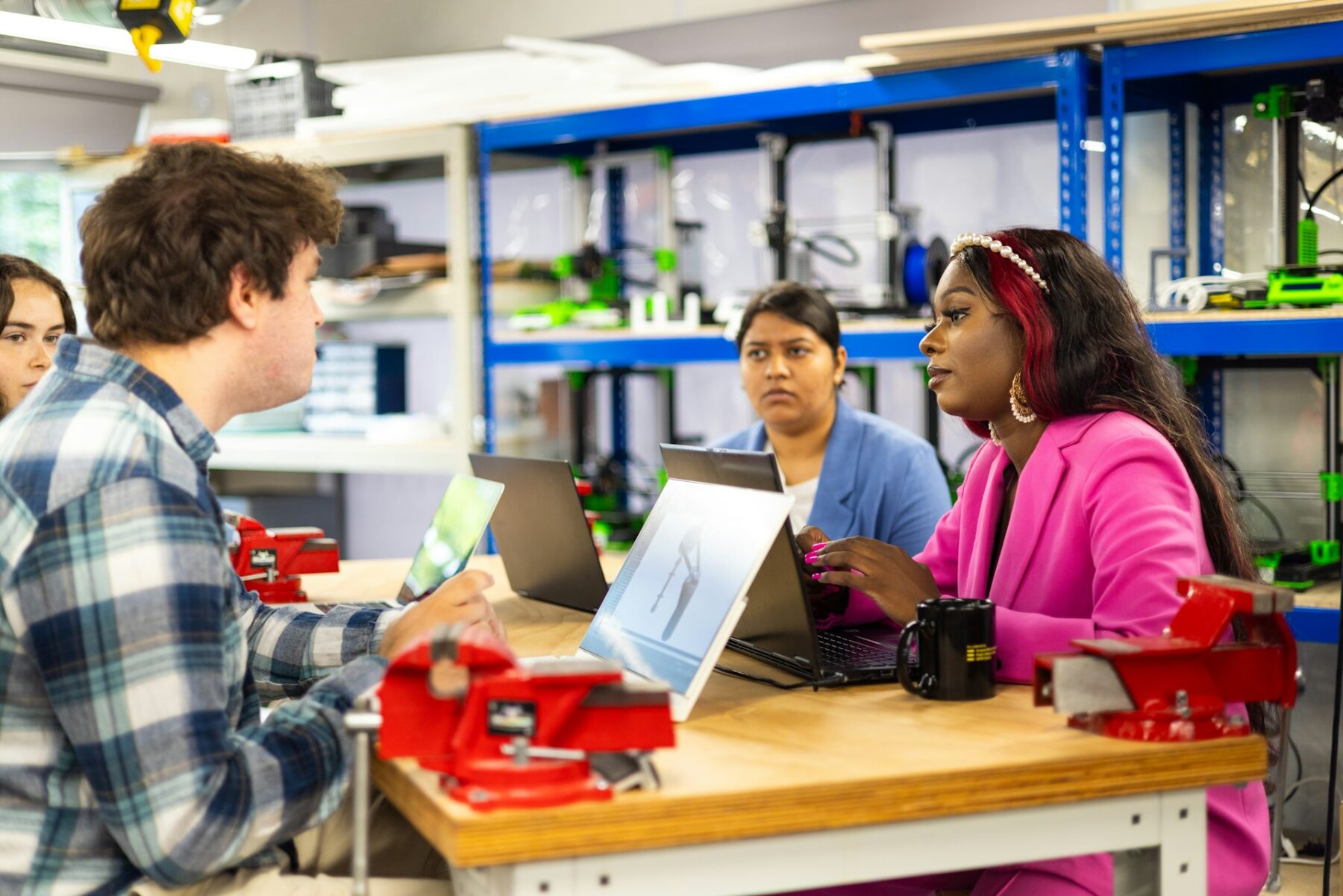
Tools That Would Make STEM Degrees More Affordable Remain Unexamined
Artificial Intelligence

Don’t Let Governments Buy AI Systems That Ignore Human Rights
In Focus

An AI Society
Art by Amy Karle.Read More
The Spring Issue
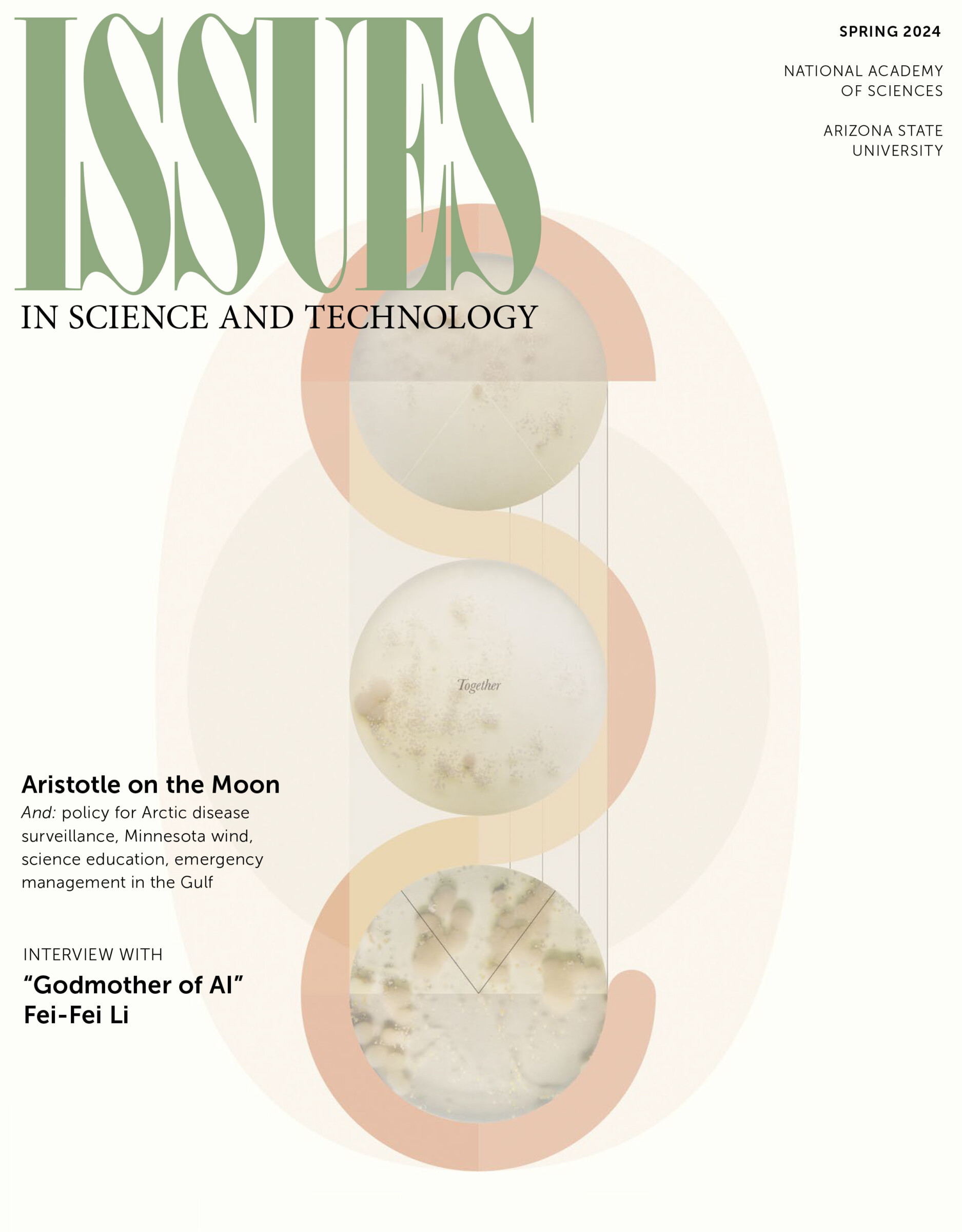
As decisionmaking moves toward the state and local levels, science leaders will need to understand how the landscape of opportunity is shifting and build the capacity to answer questions posed by specific geographic communities.
Join the Conversation
Social Media
Follow us on Twitter, Facebook, and LinkedIn.
Podcast
Listen to The Ongoing Transformation for conversations with today’s most exciting thinkers.
See EpisodesForum
In response to essays published in Issues, our readers weigh in on critical topics in policy related to science, technology, and society.
Send a ResponseCurrent Issue
Aristotle on the Moon
Spring 2024
For better or worse, finding workable solutions to significant problems among people who share land, traditions, and values may be easier and more effective than global and national efforts. For the scientific enterprise, the devolution of big policy to small places poses new challenges around establishing spaces for democratic decisionmaking, building knowledge to inform those decisions, and effectively linking the two. As decisionmaking moves toward states and localities, science leaders will need to understand how the landscape of opportunity is shifting and build the capacity to answer questions posed by specific geographic communities.
Browse the Issue
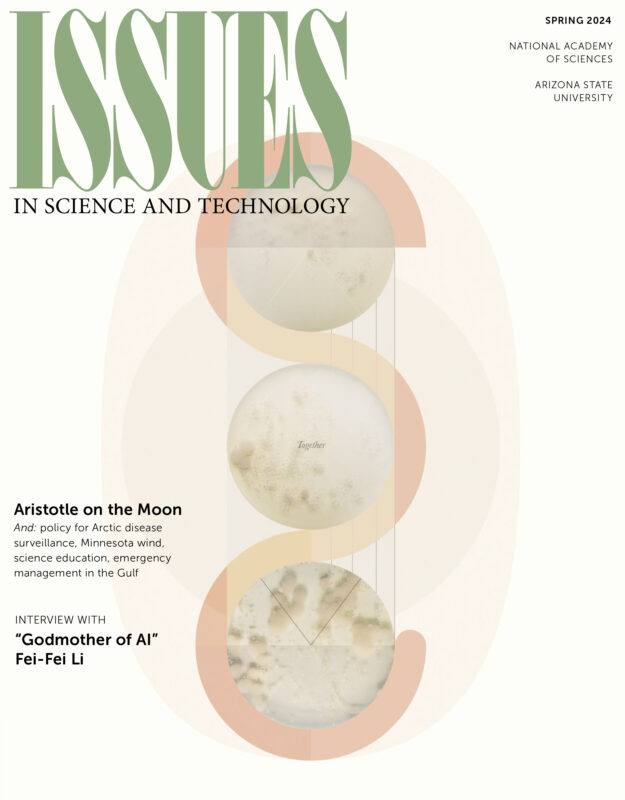
For faster access to our full journal and to see the beautiful artwork that accompanies our feature essays, subscribe to the print edition today.
Online Exclusives
Oppenheimer

The Slippery Slope of Scientific Ethics
Film Review
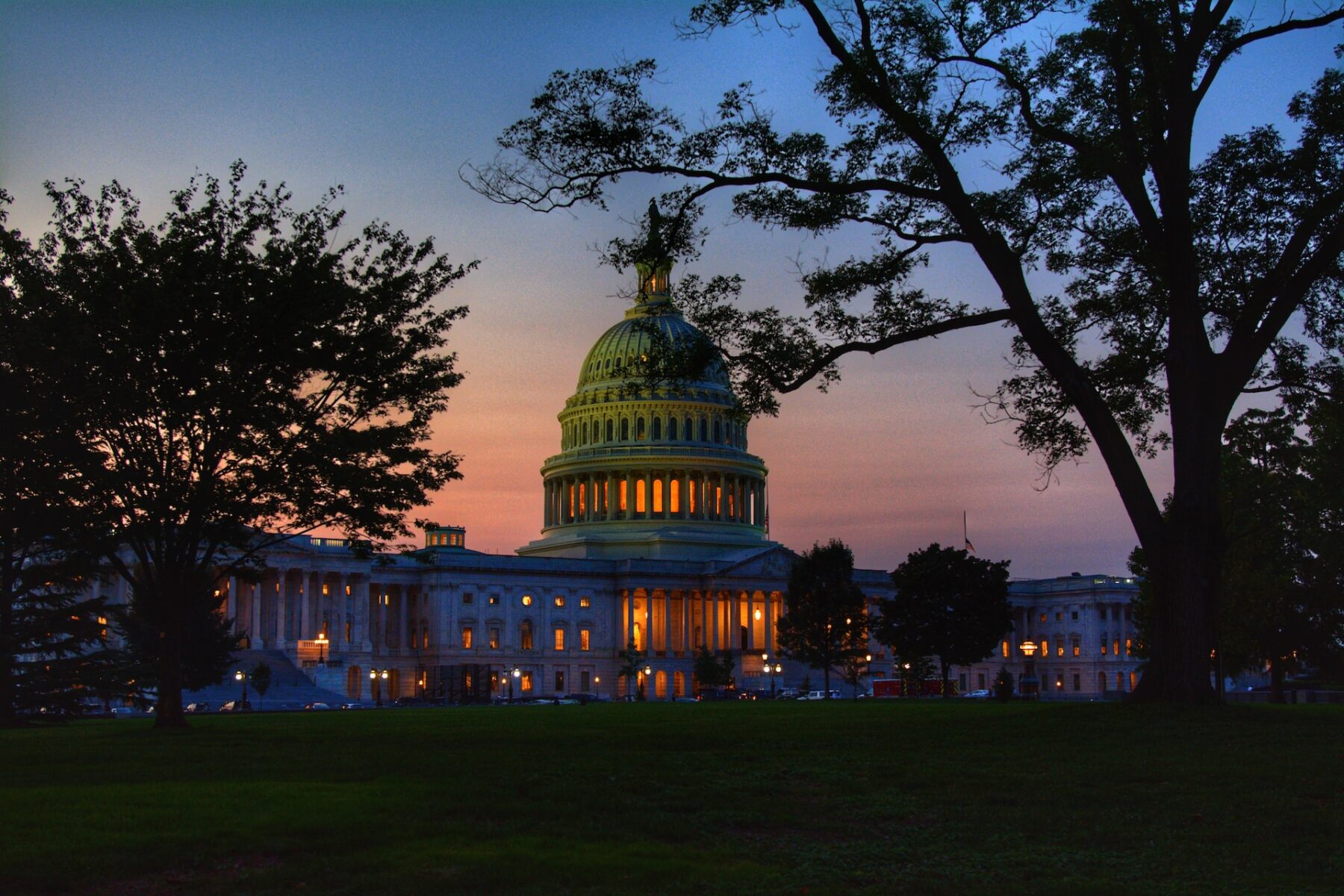
No Ordinary Documentary
Human Development

The Camouflaged Metaphysics of Embryos
The ISSUES Interview

“The Complexity of Technology’s Consequences Is Going Up Exponentially, But Our Wisdom and Awareness Are Not.”
News
Connecting today’s headlines with deeper policy analyses from the Issues archives.
Creativity During COVID

A Time Capsule of Creative Responses to the Pandemic
Explore Issues By Topic
- Agriculture and Food
- Climate
- Defense and National Security
- Education
- Energy
- Ethics, Values, and Philosophy
- Global Affairs
- Medicine
- Engineering and Infrastructure
- Innovation Policy
- Online Exclusives
- Real Numbers
- Science Politics
- Fiction and Poetry
- Science and Society
- Socrates Untenured
- Space
- Transportation

